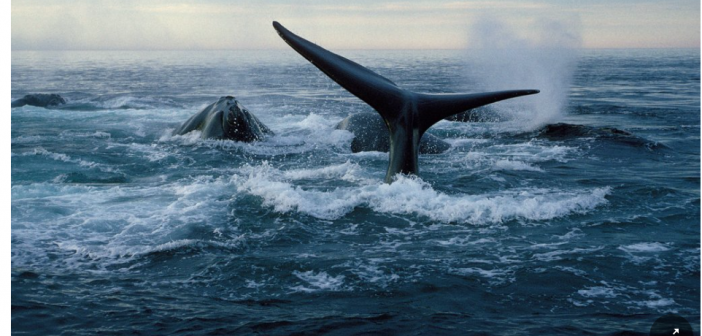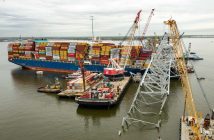The oceans are getting louder, with increased noise levels coming from ever-larger commercial ships and new offshore drilling. And the new sound levels are so high that they pose health problems for marine life from right whales to plankton.
The newest problem is coming from seismic air guns used for offshore drilling in oil and gas exploration. The Administration has allowed offshore drilling, with seismic mapping, along the Atlantic coast from Florida to the Northeast. Similar exploration and seismic mapping, with the use of air guns, is expected soon along the Gulf Coast and the Pacific Coast as well.
“They fire approximately every 10 seconds around the clock for months at a time,” Douglas Nowacek, a professor of marine conservation technology at Duke University told The New York Times. “They have been detected 4,000 kilometers away. These have a huge, huge impact.”
A study two years ago found that a loud blast, softer than the sound of a seismic air gun, killed two-thirds of the plankton within three-quarters of a mile. Each seismic shot from an air gun reaches up to 200 decibels. Noise from container ships can reach 190 decibels. These sound levels affect sea creatures, whales, dolphins, squid and plankton.
In the first year of exploration along the East Coast, there will be more than five million seismic air gun blasts. Christopher Clark, a researcher in bioacoustics at the Cornell Lab of Ornithology who has studied whale communications for 40 years, says the noise will be a “living hell” for marine life.
He is particularly worried about endangered North American right whales (pictured above). There are now only about 400 to 500 of the giant whales, which grow up to 60 feet long. They calve and nurse their young in the Atlantic in warmer waters from Florida to North Carolina. Noise affects the whales in everything they do, from feeding to taking care of their young. “It’s ripping the communications system apart,” Dr. Clark said. “And every aspect of their lives is depending on sound, including finding food.” Read more:
https://www.nytimes.com/2019/01/22/science/oceans-whales-noise-offshore-drilling.html




